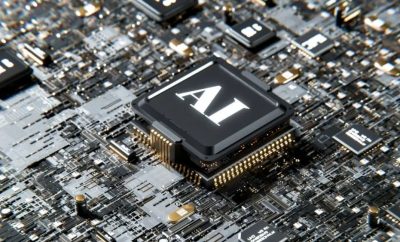
The role of the arts and humanities in thinking about artificial intelligence (AI)
Reclaiming a broad and foundational understanding of ethics in the AI domain, with radical implications for the re-ordering of social power
What is the contribution that the arts and humanities can make to our engagement with the increasingly pervasive technology of artificial intelligence? My aim in this short article is to sketch some of these potential contributions.
Choice
Perhaps the most fundamental contribution of the arts and humanities is to make vivid the fact that the development of AI is not a matter of destiny, but instead involves successive waves of highly consequential human choices. It’s important to identify the choices, to frame them in the right way, and to raise the question: who gets to make them and how?
This is important because AI, and digital technology generally, has become the latest focus of the historicist myth that social evolution is preordained, that our social world is determined by independent variables over which we, as individuals or societies, are able to exert little control. So we either go with the flow, or go under. As Aristotle put it: ‘No one deliberates about things that are invariable, nor about things that it is impossible for him to do.’
Not long ago, processes of economic globalisation were being presented as invariable in this way until a populist backlash and then the COVID-19 pandemic kicked in. Today, it is technological developments that are portrayed in this deterministic fashion. An illustration of this trend is a recent speech by Tony Blair identifying the ‘21st-century technological revolution’ as defining the progressive task. As the political scientist Helen Thompson pointed out, technology has replaced globalisation in Blair’s rhetoric of historicist progressivism.
The humanities are vital to combatting this historicist tendency, which is profoundly disempowering for individuals and democratic publics alike. They can do so by reminding us, for example, of other technological developments that arose the day before yesterday – such as the harnessing of nuclear power – and how their development and deployment were always contingent on human choices, and therefore hostage to systems of value and to power structures that could have been otherwise.
Συνέχεια ανάγνωσης εδώ
Plus:
In response, Shannon Vallor, Baillie Gifford Chair in the Ethics of Data and Artificial Intelligence in the University of Edinburgh’s Department of Philosophy, asks for a reconfiguration of our understanding of values, arguing that literature and the arts can bring a richer moral, political and technological imagination and a reclaiming of values such as care, mending and restoration.
And Alison Powell, Director of the JUST AI network, shifts to observing the ethical aspects of practice, and suggests that there is value in nuancing Tasioulas’s framing of the ‘Three P’s of AI Ethics’ (pluralism, procedures and participation) and reframing procedures as practices.
Πηγή: adalovelaceinstitute.org




